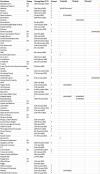same just got the invite !!Kingsley Napley next stage invite!!
Over the moon as I thought I bombed the test!!
-
TCLA Premium: Now half price (£30/month). Applications, interviews, commercial awareness + 700+ examples.Join →
You are using an out of date browser. It may not display this or other websites correctly.
You should upgrade or use an alternative browser.
You should upgrade or use an alternative browser.
TCLA Direct Training Contract Applications Discussion Thread 2024-5
- Thread starter TCLA Community Assistant
- Start date
same just got the invite !!
congratulations bothInvite to next stage of Kingsley Napley !!
my current tally:

- Haynes Boone
- Eversheds Sutherland (invited to Watson Glaser)
- White & Case
- Bevan Brittan
- Shoosmiths (invited to Watson Glaser)
- Hogan Lovells (invited to Watson Glaser)
- TLT
- Macfarlanes (invited to Watson Glaser)

Nothing from Kingsley Napley yet...think it's a pfo for me😔
in the same boat but it's okay onto the next one!!! it just means something even better is on its way to usNothing from Kingsley Napley yet...think it's a pfo for me😔
Anyone know what percentage (I.e is it worth apply DTC to them) these firms take from their DTC:
- BCLP
- Dentons
- Paul Hastings
- White and Case
- Macfarlanes
- Stephenson harwood
- Sullivan cromwell
- K&L gates
- BCLP
- Dentons
- Paul Hastings
- White and Case
- Macfarlanes
- Stephenson harwood
- Sullivan cromwell
- K&L gates
Anyone know what percentage (I.e is it worth apply DTC to them) these firms take from their DTC:
- BCLP
- Dentons
- Paul Hastings
- White and Case
- Macfarlanes
- Stephenson harwood
- Sullivan cromwell
- K&L gates
I think Paul Hastings is 100% DTC. They have a SVS (Phirst Steps) but I don’t believe it leads to a TC offer like a normal VS would. 🥲
Macfarlanes and SH are around 50%. White & Case is 20%. I think BCLP is similar, but most of their offers go to VS’ers. 😅
Not too sure about S&C or K&L. I think it would always be worthwhile to apply for DTC at any firm tbh. Best of luck with them all! 😀
Macfarlanes and SH are around 50%. White & Case is 20%. I think BCLP is similar, but most of their offers go to VS’ers. 😅
Not too sure about S&C or K&L. I think it would always be worthwhile to apply for DTC at any firm tbh. Best of luck with them all! 😀
Last edited:
I think Paul Hastings is 100% DTC. They have a SVS (Phirst Steps) but I don’t believe it leads to a TC offer like a normal VS would. 🥲
Macfarlanes and SH are around 50%. White & Case is 20%. I think BCLP is similar, but most of their offers go to VS’ers. 😅
Not too sure about S&C or K&L. I think it would always be worthwhile to apply for DTC at any firm tbh. Best of luck with them all! 😀
Just putting some numbers together based on Legal Cheek, looks like it's around 12 TCs at Paul Hastings, 15 at Macfarlanes, 12 at Stephenson Harwood, 10 at White & Case, and 4 at BCLP. Agreed, apply for the DTC!
Hi everyone, I got to the test stage invite for Kingsley Napley and didn’t get through. I seem to have this issue for a lot of firms. I take practice tests for Watson Glaser along with other types of critical thinking skills. I keep falling short even though I score well on the practice tests. Any advice from anyone who struggled before and now has managed to be able to pass them?
A lot of universities provide access to WG prep through sites like Graduates First and Job Test Prep, case in point: Oxford Uni careers website.Hi everyone, I got to the test stage invite for Kingsley Napley and didn’t get through. I seem to have this issue for a lot of firms. I take practice tests for Watson Glaser along with other types of critical thinking skills. I keep falling short even though I score well on the practice tests. Any advice from anyone who struggled before and now has managed to be able to pass them?
Have you checked out if you have access to anything?
Uni Nottingham provides Alumni access too, so worth looking into if your university provides wider access than just current students.
Hi, did anyone get any reply from Howard Kennedy? It was supposed to be last week but I haven’t heard anything 
T
Tintin06
Guest
Sullivan & Cromwell seems VS only. They don’t regularly recruit via DTCs.Anyone know what percentage (I.e is it worth apply DTC to them) these firms take from their DTC:
- BCLP
- Dentons
- Paul Hastings
- White and Case
- Macfarlanes
- Stephenson harwood
- Sullivan cromwell
- K&L gates
Does anyone know if White & Case’s DTC is rolling or not?
DTC is non-rolling. They are rolling for VS. DTC deadline is in July I think. 🙂
T
Tintin06
Guest
Also, you can apply for both.DTC is non-rolling. They are rolling for VS. 🙂
That's also true for Morgan Lewis.
Anyone still waiting on Baker McKenzie?
Hi - did you hear any news or are you still waiting? They should have gotten back to you by now!Does anyone have any news on Bristows DTC?
Similar threads
- Sticky
- Replies
- 2K
- Views
- 336K
- Sticky
- Replies
- 22K
- Views
- 3M
- Locked
- Replies
- 22K
- Views
- 5M
- Locked
- Replies
- 6K
- Views
- 1M




